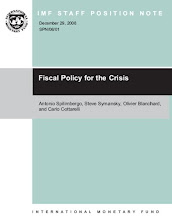The RBI after month of deliberation finally unveiled norms for trading in currency futures. Banks will need RBI nod to participate in forex futures. It also stipulated that banks should have a minimum net worth of Rs 500 cr, a capital adequacy ratio of at least 10%. They should have made a net profit for the last three years to qualify for trading in currency futures on exchanges. Banks will also be required to get the approval of their board of directors in case they qualify. The RBI has further clarified that banks which do not meet these requirements (including urban co-operative banks) can participate only as clients, and that too after securing a regulatory nod. The currency futures market will be allowed in stock exchanges or new exchanges recognised by SEBI and would be bound by the guidelines issued by the RBI and SEBI.
To start with, RBI has allowed only resident Indians or locals to participate in currency futures, thus effectively keeping out foreign investors such as portfolio investors and hedge funds besides NRI’s for now. Initially, trading contracts denominated in the US dollar and the Indian rupee will only be allowed. The size of the contract has been set at $1000 and the tenure at 12 months. The central bank has also specified that the contracts will be quoted and settled only in rupees. The trading of currency futures shall be subject to maintaining initial, extreme loss and calendar spread margins and the clearing houses of the exchanges will ensure maintenance of such margins as per capital market regulator’s guidelines issued from time to time. Trading members have been prescribed a position limit of $ 25 mn across all contracts. However, the gross open position of a trading member that is a bank, across all contracts, shall not exceed 15% of the total open interest or $100 mn, whichever is higher.
The RBI may from time to time modify the eligibility criteria for the participants, modify participant-wise position limits, prescribe margins and/or impose specific margins for identified participants, fix or modify any other prudential limits, or take such other actions as deemed necessary in public interest, in the interest of financial stability and orderly development and maintenance of foreign exchange market in India.
The norms have kept in mind that that excess speculation in the Indian currency is curbed as the norms are similar to the norms followed by banks in other segments. Rumors have it that BSE, NSE and MCX have already submitted a proposal to launch a platform for currency futures, and more entities are expected to submit applications to the regulators. On the banking front, most banks would be attracted to become members as it means captive business for them, but banks may prefer setting up a subsidiary for this business, as it is a relatively new activity.
What are currency futures?
To start with, RBI has allowed only resident Indians or locals to participate in currency futures, thus effectively keeping out foreign investors such as portfolio investors and hedge funds besides NRI’s for now. Initially, trading contracts denominated in the US dollar and the Indian rupee will only be allowed. The size of the contract has been set at $1000 and the tenure at 12 months. The central bank has also specified that the contracts will be quoted and settled only in rupees. The trading of currency futures shall be subject to maintaining initial, extreme loss and calendar spread margins and the clearing houses of the exchanges will ensure maintenance of such margins as per capital market regulator’s guidelines issued from time to time. Trading members have been prescribed a position limit of $ 25 mn across all contracts. However, the gross open position of a trading member that is a bank, across all contracts, shall not exceed 15% of the total open interest or $100 mn, whichever is higher.
The RBI may from time to time modify the eligibility criteria for the participants, modify participant-wise position limits, prescribe margins and/or impose specific margins for identified participants, fix or modify any other prudential limits, or take such other actions as deemed necessary in public interest, in the interest of financial stability and orderly development and maintenance of foreign exchange market in India.
The norms have kept in mind that that excess speculation in the Indian currency is curbed as the norms are similar to the norms followed by banks in other segments. Rumors have it that BSE, NSE and MCX have already submitted a proposal to launch a platform for currency futures, and more entities are expected to submit applications to the regulators. On the banking front, most banks would be attracted to become members as it means captive business for them, but banks may prefer setting up a subsidiary for this business, as it is a relatively new activity.
What are currency futures?
Currency futures are standardised foreign exchange derivative contracts traded on a stock exchange to buy or sell one currency against another on a specified future date, at a price specified on the date of contract, but does not include a forward contract.




No comments:
Post a Comment